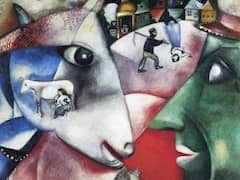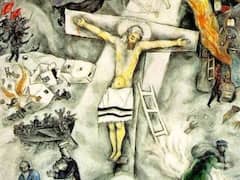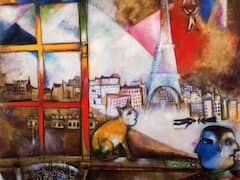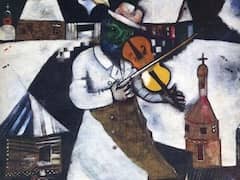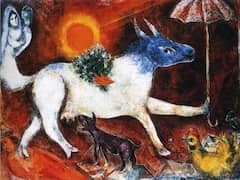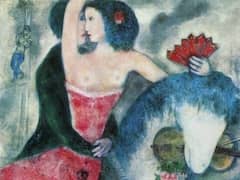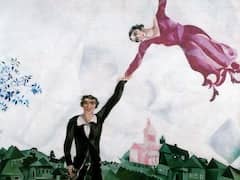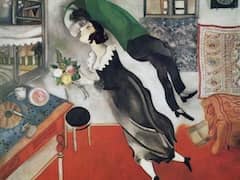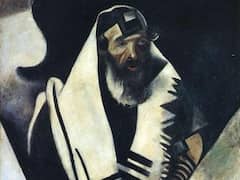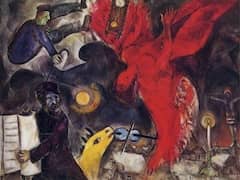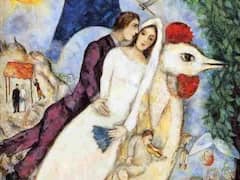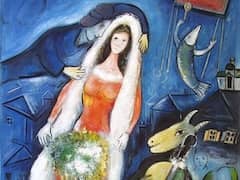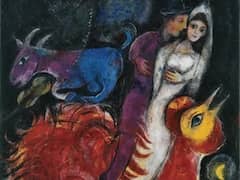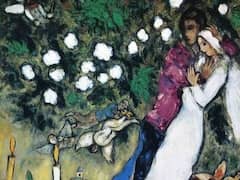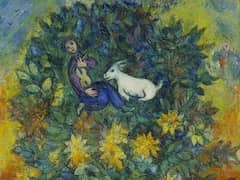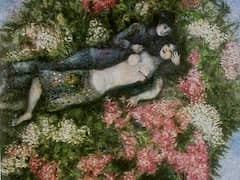Homage to Apollinaire, 1911-12 by Marc Chagall
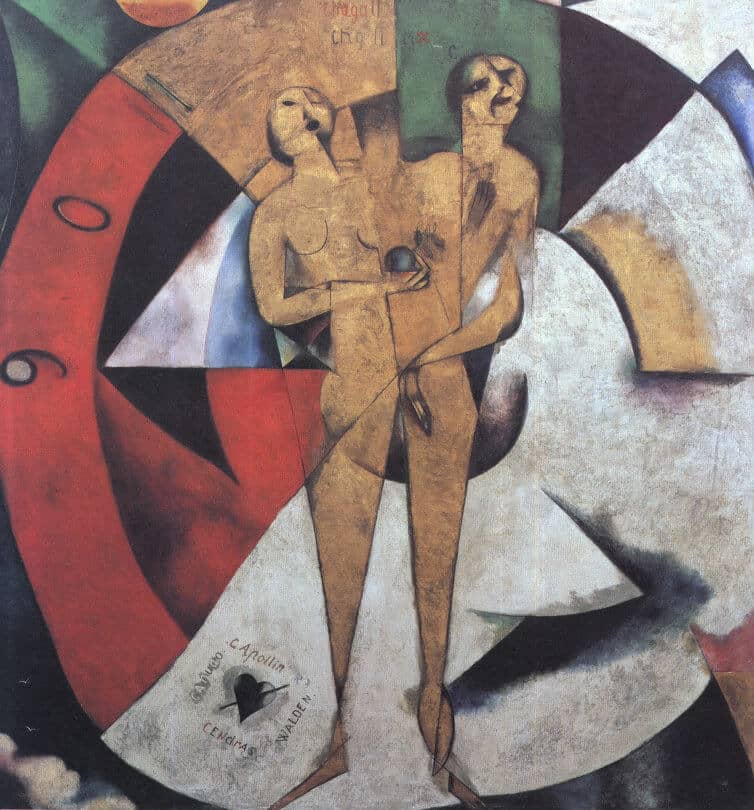
Apollinaire, Guillaume (1880-1918) was a French poet and art critic of Polish origin, and a prominent member of the artistic community at Montparnasse. His effusive personality and enthusiasm for the new art movements emerging in the artists' commune -- he treated all the movements, from Cubism to Primitivism to Futurism to Surrealism, with equal delight -- made him one of Montparnasse's most popular and recognized figures even though he was not an artist himself. Apollinaire was close friends with such notables as Pablo Picasso, Andre Breton, Marcel Duchamp, Ossip Zadkine, Marc Chagall and Henri Rousseau.
In literary terms, Apollinaire is probably best known for his essays on art, including Les peintres cubists, meditations aesthetiques (The Cubist Painters, Aesthetic Meditations, 1913). His most notable poetic works were probably the two collections Alcools (Alcohols, 1913) and, later, Et moi aussi je suis peintre (And I Too Am a Painter, 1914). The painter was also notorious for writing the erotic novel Les onze mille verges (The Eleven Thousand Rods, 1907). He was also suspected of having penned Les exploits d'un jeune Don Juan (The Exploits of a Young Don Juan, 1907), a pornographic novel that was banned in France until 1970.
Apollinaire was responsible for coining the term "surrealist" when describing his own play Les Mamelles de Tiresias (The Breasts of Tiresias, 1917). This name would be adopted by the group that formed around Andre Breton in the early 1920s.
In 1914, when Germany declared war on France, Apollinaire rushed to enlist. He was wounded in the head in 1916 and discharged from the army. He died in 1918, while still recovering from his injuries, a victim of the Spanish flu pandemic.

